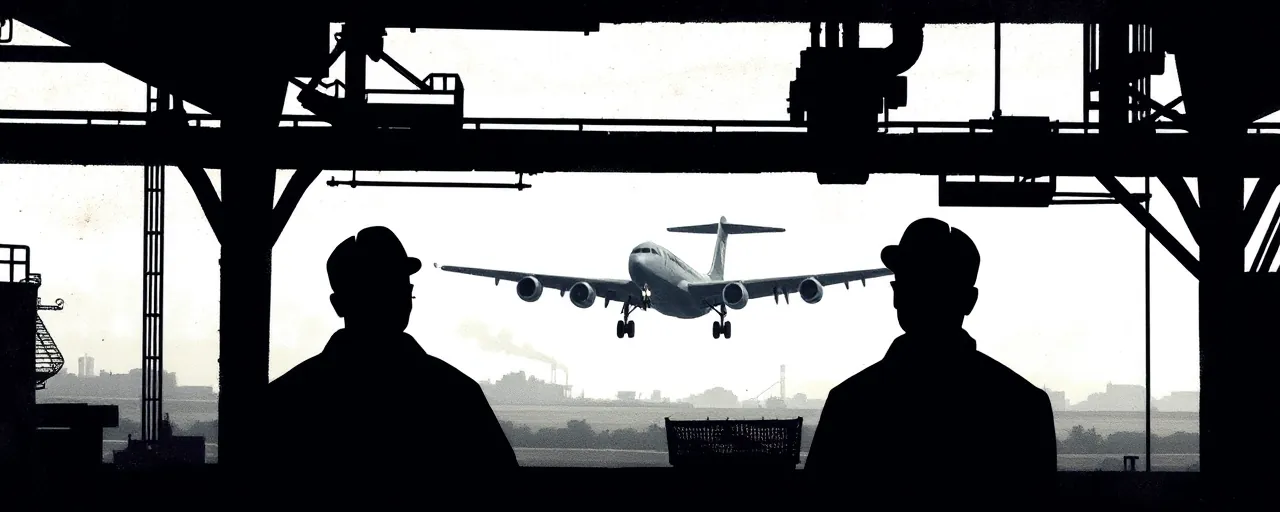A Giant Stumbles in the Trade War’s Shadow
Boeing, America’s aerospace titan, is reeling. Chinese airlines, once reliable buyers, have rejected ten of its planes, citing Beijing’s retaliatory tariffs. These jets, now in limbo, symbolize a broader crisis sparked by the U.S.-China trade war. The Trump administration’s aggressive tariffs, reaching up to 145% on Chinese goods, have backfired, leaving Boeing scrambling to find new buyers in markets like India. This isn’t just a corporate misstep; it’s a warning. The ripple effects of reckless trade policies are grounding American workers and dreams.
The human cost is stark. In Everett, Washington, where Boeing’s massive factories hum, thousands of unionized workers face uncertainty. Each undelivered plane represents not just lost revenue but delayed paychecks, strained families, and communities on edge. The administration’s chest-thumping tariffs were sold as a defense of American jobs, but they’re now jeopardling economic chaos. Boeing’s stock is wobbling, and its supply chain, a global web of precision, is fraying under the weight of geopolitical gamesmanship.
This moment demands clarity. The trade war, fueled by a misguided belief that tariffs alone can restore American dominance, is punishing the very industries it claims to protect. Aerospace, a cornerstone of U.S. innovation, is uniquely vulnerable. Boeing’s predicament exposes the flaws of a policy that prioritizes bravado over strategy, leaving workers and businesses to bear the cost. It’s time to rethink how we compete with China without shooting ourselves in the foot.
Advocates for a smarter approach—those pushing for diplomacy and multilateral trade frameworks—see a better path. They argue for policies that bolster American industries through investment and innovation, not isolation. The liberal vision isn’t naive; it’s grounded in the reality that global markets thrive on cooperation, not confrontation. Boeing’s woes are a clarion call to reject the tariff trap and chart a course that lifts all Americans.
The High Cost of Economic Nationalism
Boeing’s struggle is no anomaly. The trade war’s fallout is reshaping global commerce, and the numbers are grim. By 2024, harmful trade interventions had skyrocketed to over 3,000 annually, up from 600 in 2017. These barriers, driven by a wave of economic nationalism, are choking supply chains and inflating costs. For Boeing, redirecting planes rejected by China to buyers like Air India is no simple fix. Each jet requires costly reconfiguration, eating into margins and delaying deliveries.
The administration’s defenders argue that tariffs protect American jobs and curb China’s economic ascent. They point to aerospace as a national security asset, deserving of aggressive support. But this logic crumbles under scrutiny. Tariffs have spiked production costs and alienated trading partners, with China’s 125% levies on U.S. aerospace goods hitting Boeing hard. Meanwhile, allies like Canada and Mexico face U.S. tariffs of 25% on their goods, fraying relationships that American industries rely on. This isn’t strength; it’s self-sabotage.
Workers are paying the price. In Wichita, Kansas, where Boeing suppliers craft critical components, small businesses are slashing jobs to absorb tariff-driven costs. The global shortage of jets, a boon for Boeing in theory, is undercut by production delays and financial strain. The company’s recent strike and quality scandals only deepen the crisis, but tariffs are the root. They’ve turned a competitive industry into a geopolitical pawn, with American livelihoods caught in the crossfire.
Contrast this with a vision rooted in collaboration. Investing in workforce training, modernizing infrastructure, and forging trade agreements that lower barriers would do more to secure Boeing’s future than any tariff wall. The Inflation Reduction Act and Chips for Science Act, though imperfect, show what targeted public investment can achieve. They create jobs and innovation without alienating the world. Boeing needs that stability, not the chaos of trade wars.
India’s Rise, America’s Opportunity
Amid the wreckage, a silver lining emerges: India. Air India’s talks to acquire Boeing’s stranded jets signal a shift in global trade dynamics. India, with its 6.8% GDP growth and $190 billion in U.S. trade, is stepping up as a counterweight to China. Its National Logistics Policy and incentive schemes are luring manufacturers displaced by the trade war. For Boeing, India offers not just a buyer but a strategic partner in a reconfigured world.
This pivot isn’t accidental. India’s leaders are capitalizing on U.S.-China tensions to position their nation as a manufacturing hub. Trade negotiations with the U.S. aim to slash tariffs, potentially unlocking $30 billion in annual investment. For American workers, this could mean new markets and demand for Boeing’s jets, stabilizing jobs. But seizing this opportunity requires a U.S. policy that embraces partnership, not protectionism.
Skeptics of this approach, often aligned with the administration, warn that relying on foreign markets risks American sovereignty. They’d rather double down on tariffs and subsidies to bring manufacturing home. But this ignores reality. Aerospace supply chains are global by necessity; no single nation can dominate them. Shunning partners like India hands competitors like Airbus an edge, as they court New Delhi with fewer strings. A smarter U.S. strategy would deepen ties with India, ensuring Boeing—and its workers—thrive in a multipolar world.
A Path Forward for American Workers
Boeing’s crisis is a microcosm of a larger truth: tariffs hurt more than they help. The path forward lies in policies that empower workers and industries without burning bridges. Public investment in education, green technology, and infrastructure can rebuild America’s industrial base. Multilateral trade talks, grounded in fair rules, can address China’s practices without punishing U.S. exporters. This isn’t capitulation; it’s pragmatism.
The stakes are high. If Boeing falters, the fallout will cascade through communities, suppliers, and the broader economy. American workers deserve leaders who prioritize their livelihoods over political point-scoring. By rejecting the tariff-first mindset and embracing strategic global engagement, we can protect aerospace and secure a future where innovation, not isolation, defines America’s strength.
